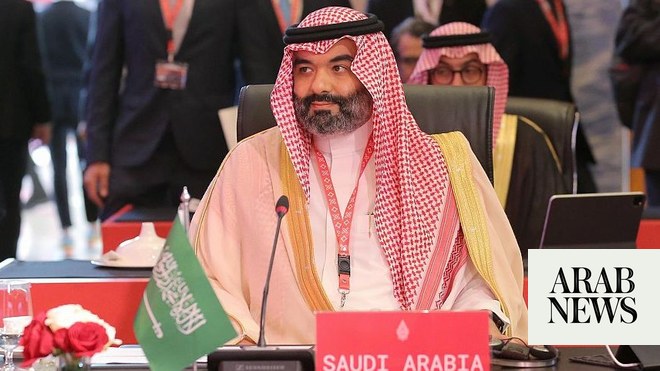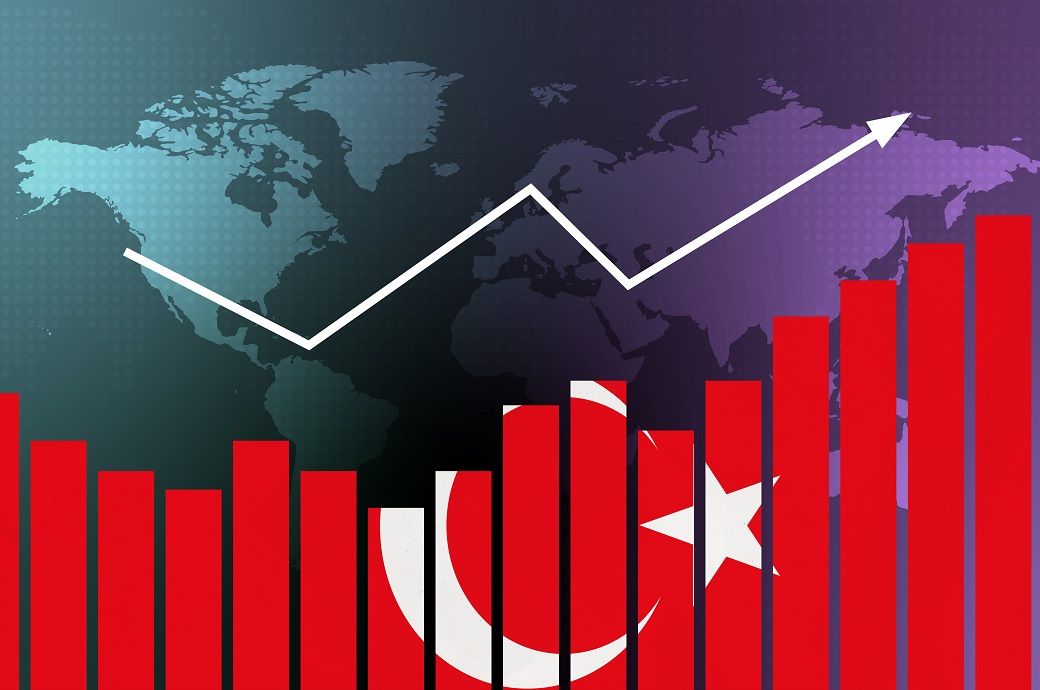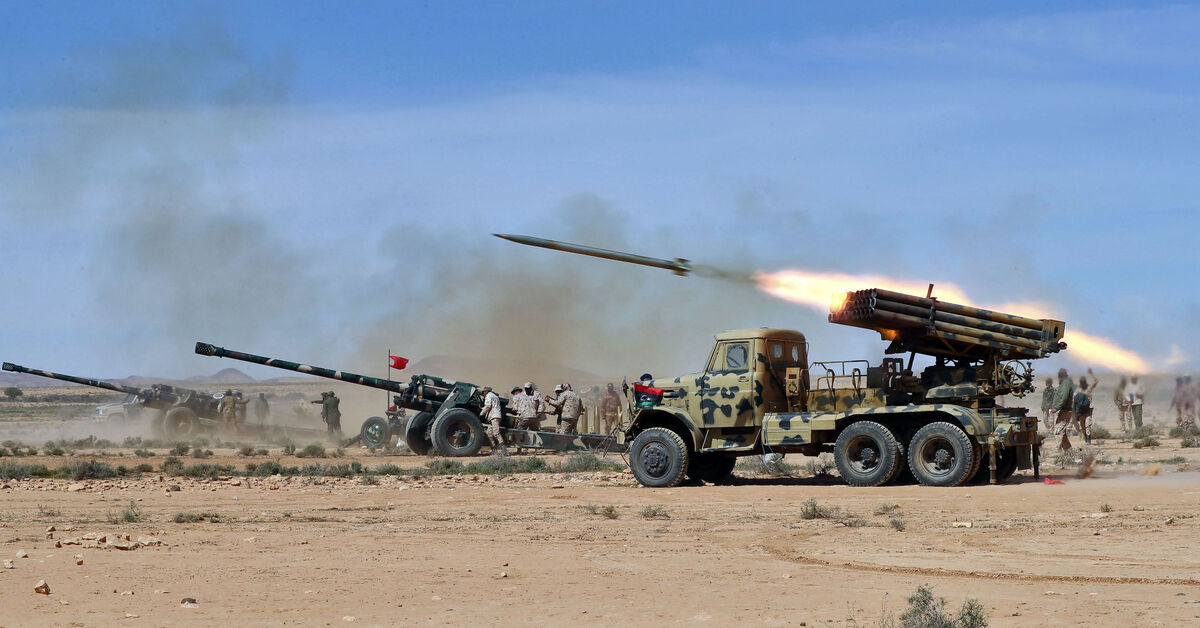Saudi Arabia partners with Egypt and Turkiye on digital economy
TUNIS: Amid the global imperative for sustainable agriculture, Africa and the Middle East have embarked on a cooperative journey to address common issues such as water scarcity and climate change, with the aim of advancing sustainable farming practices.
Their collective objective is to pool knowledge and resources, with the ultimate aim of redefining the agricultural landscape.
Experts told Arab News that in light of escalating global agricultural demands, the synergy between Africa and the Middle East offers the potential for a more environmentally friendly future in farming, one where innovation and technology play a central role in enhancing agricultural cooperation.

The FAO Science and Innovation Forum 2023, held from Oct. 16-20, is a prime example of how countries from both regions can come together to explore scientific and innovative solutions to tackle global challenges, including hunger and climate change.
Peter Anaadumba, FAO South-South and Triangular Cooperation Officer, told Arab News: “Collaboration between these regions extends beyond the agricultural field, encompassing knowledge sharing, technology transfer, and financial investments, all aimed at maximizing agricultural productivity.”
This collaboration can serve as a bulwark against the looming challenge of food security that both regions confront. However, Africa’s agricultural potential is accompanied by its fair share of challenges.
Ndidi Nwuneli, Nigerian entrepreneur and expert on African agriculture and nutrition
As global agricultural demands continue to surge and climate change presents ever-greater challenges, the synergy between Africa and the Middle East could not be timelier. These regions, each with its unique strengths and challenges, are united by a common goal: to secure a greener, more sustainable future for farming.
Ndidi Nwuneli, a Nigerian entrepreneur and expert on African agriculture and nutrition, told Arab News: “Africa is naturally endowed for agricultural excellence.”
The statistics support her claim, as a staggering 86 percent of the world’s remaining arable land is in the continent.
Abundant rainfall and a rich array of indigenous crops provide fertile ground for agricultural innovation, uniquely positioned to support the Middle East’s agricultural needs.
Nwuneli envisions a partnership that transcends borders, founded on trade, innovation, and technology.

Peter Anaadumba, FAO South-South and Triangular Cooperation Officer
“This collaboration can serve as a bulwark against the looming challenge of food security that both regions confront. However, Africa’s agricultural potential is accompanied by its fair share of challenges,” she said..
Climate change, characterized by extreme weather events, poses a significant threat to Africa. In fact, seven out of the ten most climate-affected countries in the world are in this region. This grim reality underscores the urgency of finding solutions to adapt and thrive in the face of changing weather patterns.
In addition, barriers to trade and market access have long hindered the agricultural sector in both Africa and the Middle East.
FASTFACT
Experts told Arab News that in light of escalating global agricultural demands, the synergy between Africa and the Middle East offers the potential for a more environmentally friendly future in farming, one where innovation and technology play a central role in enhancing agricultural cooperation.
“Strengthening intra-regional food supply chains is a key strategy to reduce food shortages and enhance food security,” Anaadumba said.
Joint investments in infrastructure, such as transportation networks and storage facilities, can also significantly improve the distribution of agricultural products within and between the regions.
“This not only reduces post-harvest losses but also enhances food accessibility. It’s a vital step in diversifying crops, making agricultural systems more resilient to pests, diseases, and market fluctuations,” Anaadumba stated.
Regional organizations play a pivotal role in fostering collaboration between Africa and the Middle East.
One notable example is the Islamic Development Bank, which operates across both regions.
IsDB has been at the forefront of efforts to enhance water access and management, train smallholder farmers and herders to address climate challenges, and ensure the inclusion of marginalized groups, including women and youth.
The bank’s initiatives are a testament to the power of cross-regional partnerships in addressing shared challenges.
Similarly, the Africa Export-Import Bank, based in Egypt, has been instrumental in bridging the financing gap for numerous agricultural and innovation projects.
Afreximbank’s initiatives are not just about financing; they are about fostering robust cooperation between African and Middle Eastern countries and supporting long-term infrastructure projects.
Investments from Saudi Arabia and the UAE in infrastructure, irrigation, road construction, and fertilizer production are just a glimpse of what is possible when regional institutions collaborate.
“Technology and innovation are at the heart of sustainable agriculture,” Nwuneli said, adding: “Both Africa and the Middle East recognize their transformative potential.”
The entrepreneur went on to highlight the “cutting-edge solutions” being developed across the seeds and soil health sectors, which have led to productivity improvement and climate-smart approaches.
“These innovations are not only increasing the productivity of farmers but also enabling them to scale their operations, ensuring food security for their communities,” she added.
Logistics and infrastructure development are equally vital. Improving transportation networks and storage facilities can enhance the distribution of agricultural products within and between regions, reducing post-harvest losses and improving food accessibility.
There are already plenty of success stories of collaborative projects between Africa and the Middle East that offer valuable lessons. For instance, the UAE has supported initiatives in Liberia, Nigeria, and Zimbabwe, focusing on sustainable poultry and vegetable production, food security in conflict-affected areas, and horticulture value chains.
Qatar partnered with Somalia to improve water access and train smallholder farmers to tackle climate challenges, while Saudi Arabia has a history of supporting desert locust control in Africa, among other initiatives.
As a result, knowledge transfer between African countries and the Middle East has fostered growth and innovation, with regional institutions paving the way for collaborative research.
Nwuneli emphasizes that one common goal unites both regions: the need to leapfrog into self-sufficiency and resilience in the face of climate change.
“Achieving this ambition requires deeper collaboration, knowledge sharing, strategic partnerships, and substantial investments,” she stated.
Her views are echoed by Anaadumba who underlines the role of technology and innovation as essential drivers of this transformation.
“As seeds, soil health, productivity enhancement, and climate-smart approaches are unlocking the potential for increased agricultural productivity, research institutions on both sides of the partnership are actively collaborating to leverage indigenous crops and bridge supply chain gaps,” he said.




